Reaction to court ruling on Brexit vote
- Published
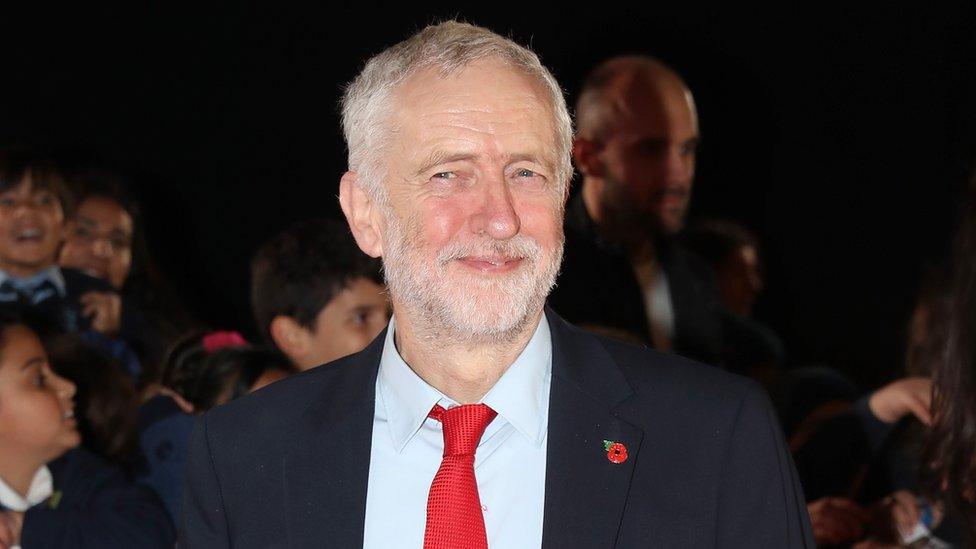
Labour leader Jeremy Corbyn said Parliament "has to have a say" in the decision to leave the EU
Following the High Court ruling that Parliament should be given a vote on whether the UK can start the process of leaving the EU, how have politicians, legal experts and other figures reacted?
Politicians
Prime Minister Theresa May
The prime minister's spokeswoman said she would be calling the President of the EU Commission, Jean-Claude Juncker, to say she intended to stick to her March 2017 deadline for triggering Article 50 - the formal two-year process to leave the EU.
Scotland's First Minister Nicola Sturgeon
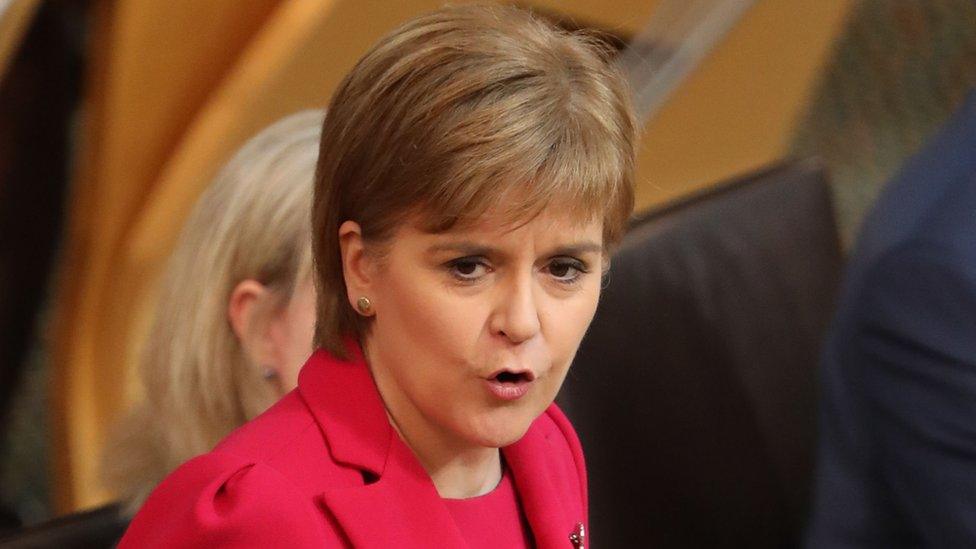
Nicola Sturgeon said the decision underlined "the total chaos and confusion at the heart of the UK government"
"The judgment this morning I don't think is a huge surprise for anyone that followed the case, but it is hugely significant and it underlines the total chaos and confusion at the heart of the UK government.
"We should remember that their refusal to allow a vote in the House of Commons is not some matter of high constitutional principle, it's because they don't have a coherent position and they know that if they take their case to the House of Commons that will be exposed."
Wales First Minister Carwyn Jones
"The High Court ruling is extremely clear - the UK government cannot trigger Article 50 using the Crown prerogative.
"Indeed, this is consistent with many of the arguments made by the Leave campaign themselves about parliamentary sovereignty.
"It is a mistake, in my view, to challenge such a clear ruling and we should now try and move ahead to develop a fuller understanding of the UK government's position."
Irish prime minister Enda Kenny
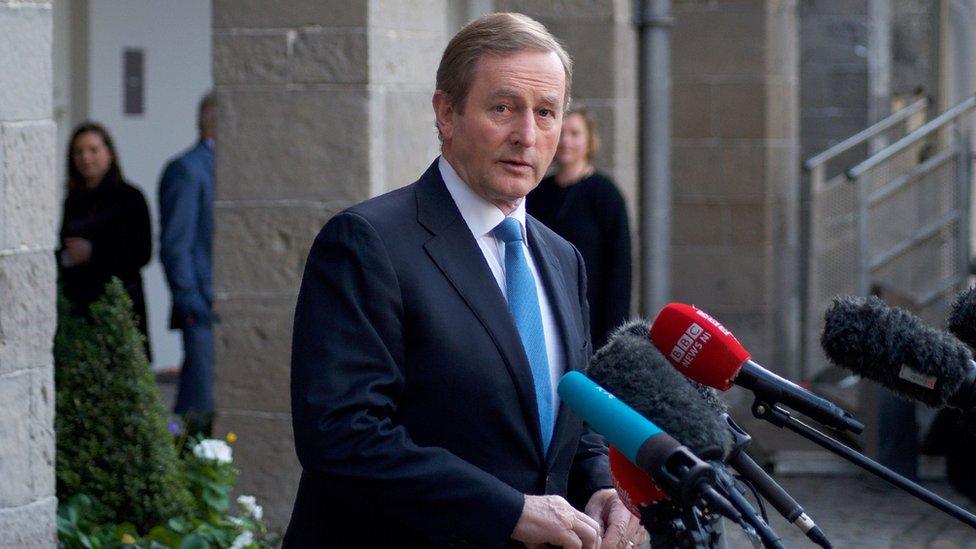
Irish prime minister Enda Kenny said the north and south of Ireland needed to work together
"Now clearly the British government have to make a decision as to whether to refer now to the Parliament or whether to appeal that case and that's a matter for them.
"Irrespective of the decision that they make there we have to concentrate on what our priorities are and work together in the interests of the common benefits of the economies of the people north and south."
Northern Ireland First Minister Arlene Foster
The Democratic Unionist leader and Brexiteer has not commented on the court case but used a weekend speech to her party conference to accuse Irish government representatives of trying to play up uncertainty around Brexit to "poach" would-be investors from Northern Ireland.
Labour leader Jeremy Corbyn
"Parliament has to have a say. This is a crucial decision for the future of this country and we are going to be looking at the issue of market access to Europe, looking at the future of manufacturing industry, looking at the finance services to Europe and of course crucially workplace regulations, environmental regulations and consumer rights."
UKIP leader Nigel Farage
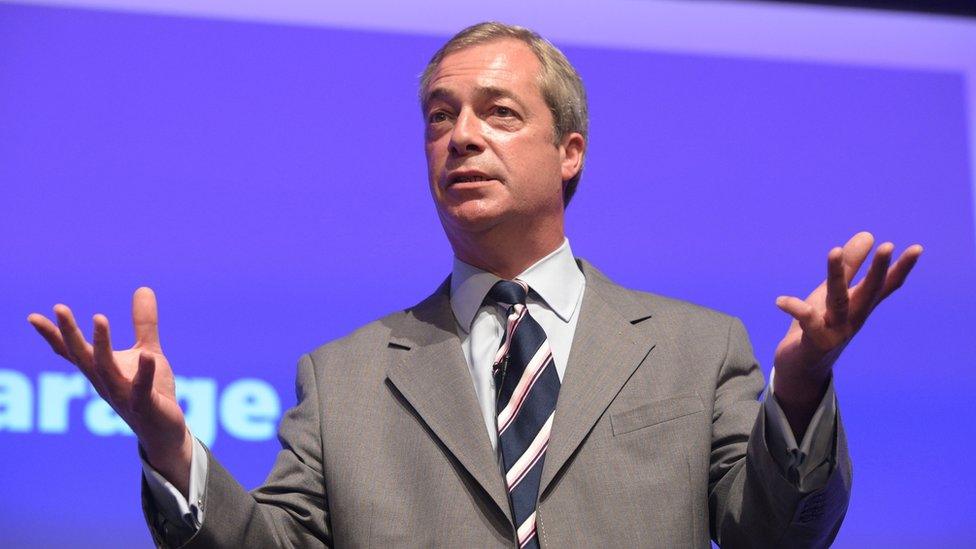
"I worry that a betrayal may be near at hand.
"Last night [Wednesday] at the Spectator Parliamentary Awards I had a distinct feeling that our political class, who were out in force, do not accept the 23rd of June referendum result."
Brexit Secretary David Davis
"Parliament voted by six to one to give the decision to the people, no ifs or buts, and that's why we are appealing this to get on with delivering the best deal for Britain - that's the best deal for growth, the best deal for investment, the best deal for jobs.
"The people want us to get on with it and that is what we are going to do."
Liberal Democrat leader Tim Farron
"It is disappointing that this government was so intent on undermining parliamentary sovereignty and democratic process that they forced this decision to be made in the court, but I welcome the news today that MPs will get to vote on the triggering of Article 50."
Green Party co-leader Caroline Lucas
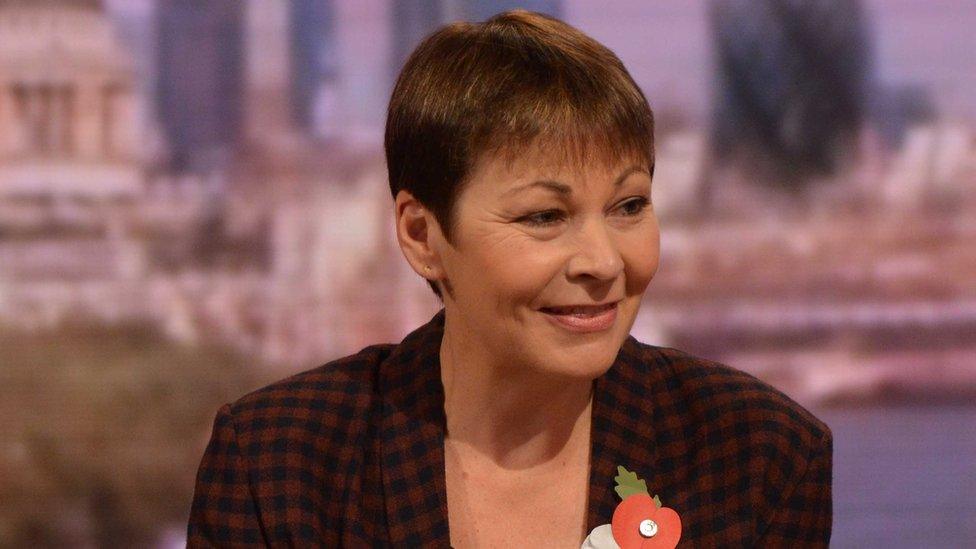
"We welcome this ruling, which shows that ministers do not have the power to trigger Article 50 without consulting Parliament.
"Parliament must have the opportunity to debate and vote on triggering Article 50, rather than a group of ministers at the top table having total control over this country's future place in the world."
Claimants in the case
Investment firm manager and lead claimant Gina Miller
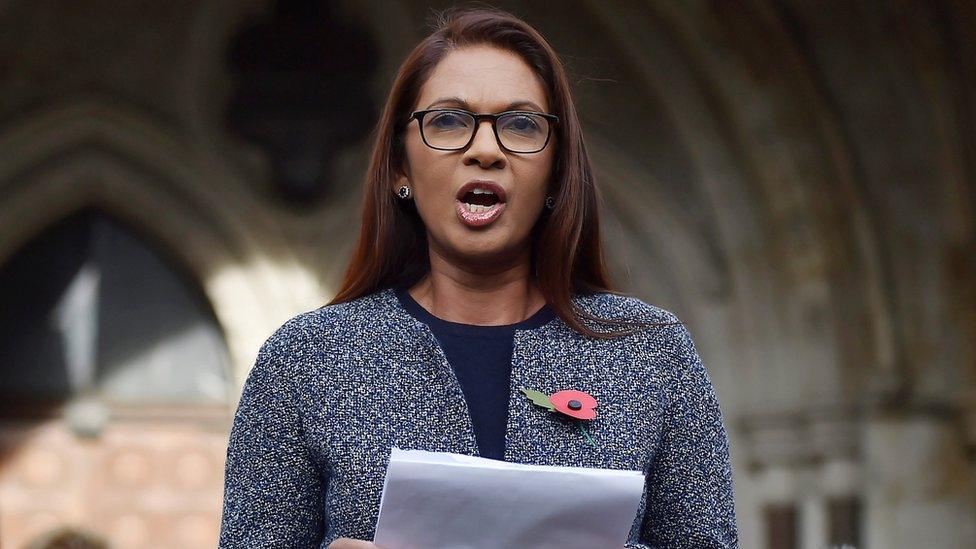
"What we're saying is, very simply, you can't have it both ways.
"You can't talk about getting back a sovereign Parliament and being in control but at the same time then bypass it.
"This whole idea we're trying to stop Brexit is a broken record. We've crossed that river, we're talking about how we leave it and it has to be with scrutiny."
Deir Dos Santos, a hairdresser and second-named claimant
His solicitor David Greene, senior partner of law firm Edwin Coe, said in a statement on his behalf: "This is a victory for democracy over the feudal institution of royal prerogative.
"The government has to accept the constitutional reality that Parliament must have early involvement in the process."
Judges
The Lord Chief Justice, Lord Thomas
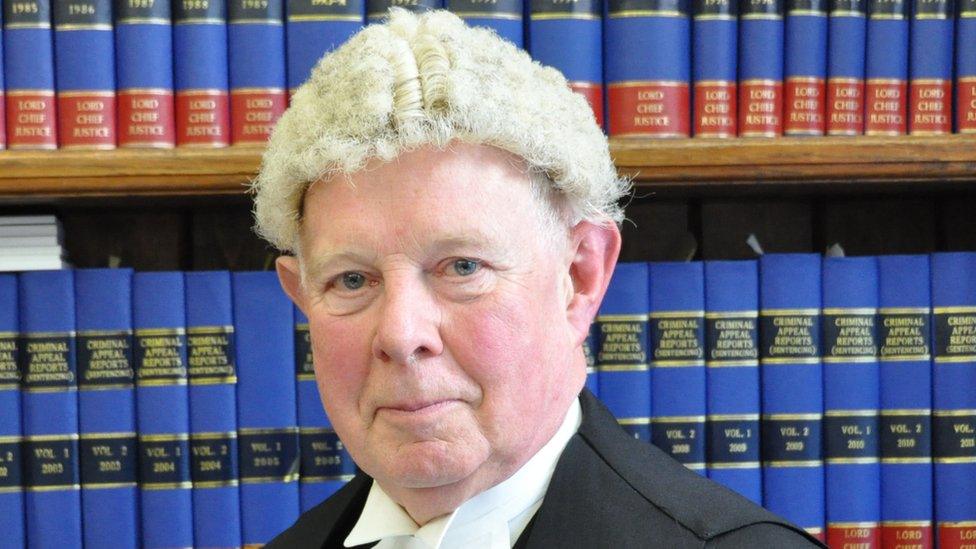
"The most fundamental rule of the UK's constitution is that Parliament is sovereign and can make and unmake any law it chooses.
"As an aspect of the sovereignty of Parliament it has been established for hundreds of years that the Crown - i.e. the government of the day - cannot, by exercise of prerogative powers, override legislation enacted by Parliament."
Legal experts
Prof Vernon Bogdanor, on BBC Radio 4's World at One
A leading expert on the British constitution at the Institute for Contemporary British History at King's College London, Prof Bogdanor said: "I think the important point is it's not quite as earth-shattering as some people are saying because Article 50 doesn't trigger a trade negotiation with the European Union.
"It's not concerned with the question of whether we have a hard or soft Brexit, whether we have access to the internal market and so on - it deals simply with a withdrawal agreement with the European Union."
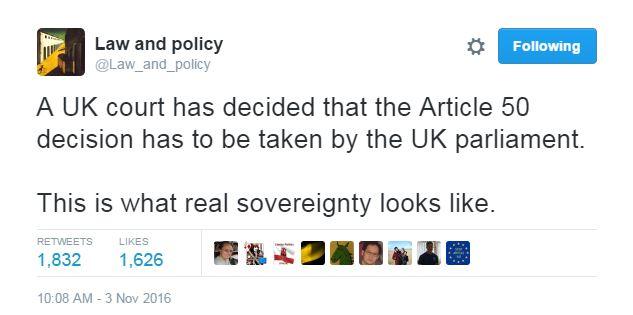
David Allen, law and policy commentator at the Financial Times, said the decision represented "real sovereingty"
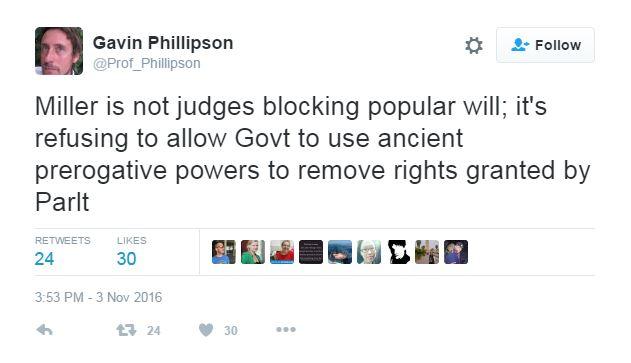
Gavin Phillipson, a law professor at Durham University, said the challenge had prevented the government from using "ancient prerogative powers"
Dr Timothy Lyons QC, writing in the Law Gazette, external
"In 1995, Lord Browne Wilkinson said: 'The constitutional history of this country is the history of the prerogative powers of the Crown being made subject to the overriding powers of the democratically elected legislature as the sovereign body.' (Ex p. Fire Brigades Union [1995] 2 All ER 244, 254d).
"In this judgment the court has written another chapter in that history. It is clear and cogent. Those who want direct, instead of representative, democracy will disagree with it. Before the Supreme Court, which will hear the appeal in December, much more than Brexit is at stake."
- Published3 November 2016
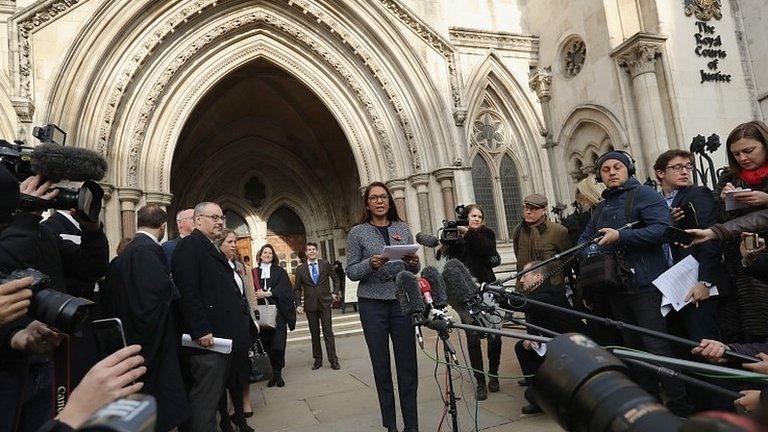
- Published3 November 2016
- Published25 September 2019
